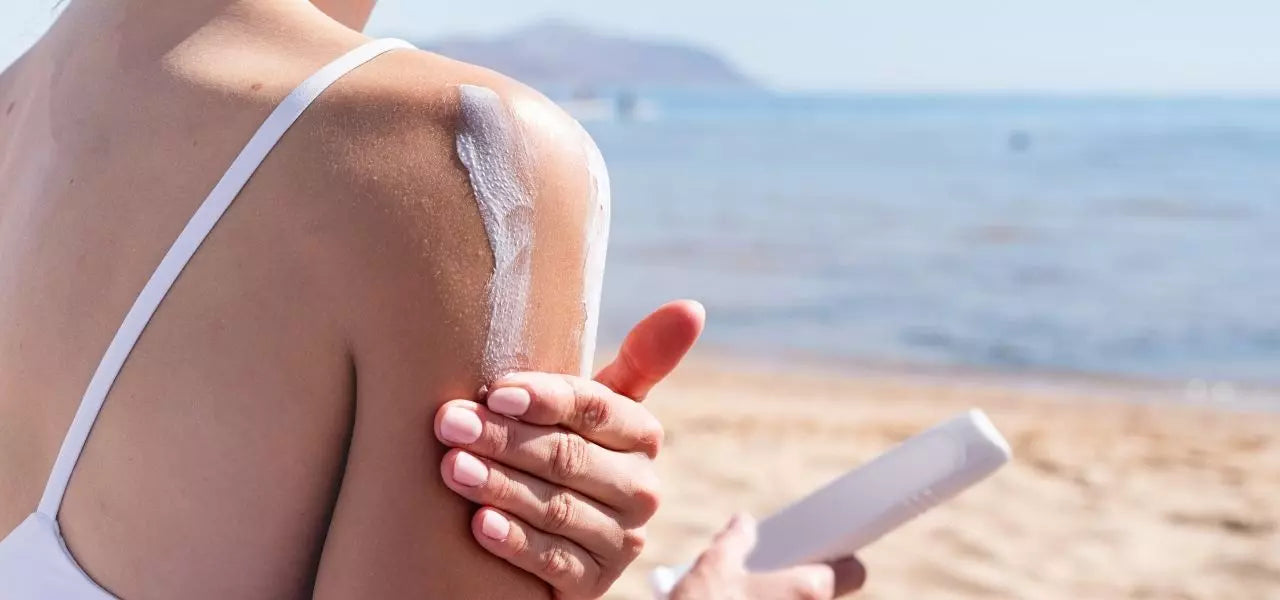We all want to protect our skin as best as possible from the sun and its harmful UV rays. However, not all UV filters are actually good for our skin. The chemical filter octocrylene, in particular, is considered questionable and is therefore currently the subject of much debate. Learn in this blog post why you should avoid octocrylene.
Octocrylene – What is it actually?
Octocrylene is a synthetically produced UV filter. It primarily filters and absorbs UV-B rays in sunlight and is widely used as a component in sunscreen products.

Why is the filter considered questionable?
Researchers have discovered that the UV filter octocrylene, often found in sunscreens, may degrade over time into the carcinogenic substance benzophenone . A French study published in the journal "Chemical Research in Toxicology" examined 16 sunscreen products containing octocrylene. All 16 products contained an average of 39 mg/kg of benzophenone upon purchase; after six weeks, this level rose to an average of 75 mg/kg.* The cosmetics industry considers these levels to be negligible, but the exact effects of benzophenone on the skin and body are not fully understood.
Octocrylene has also been linked to contact allergies. According to the German Pharmacist's Journal, many doctors consider the popular UV filter to be one of the most common causes of contact allergies associated with sunscreens.**
Tip: Change sunscreen regularly
Whether octocrylene or not, you should regularly discard old sunscreen products and, if in doubt, buy new ones. Because the protective effect of the filters diminishes over time. So, you should buy a new product by next summer at the latest.
Try our day cream with sun protection – only with safe UV filters
Have you heard of our Hyaluron Cream SPF 20? This delicate cream is a nourishing day cream and daily UV protection in one. With SPF 20, it effectively protects against UV-A and UV-B rays, thus preventing premature skin aging caused by UV damage.
While the sun is good for the soul, it can also accelerate skin aging and increase the risk of skin cancer. Daily UV protection is one of the most effective ways to prevent skin cancer, as well as dark spots, wrinkles, and other signs of aging.
Our Hyaluron Cream SPF 20 contains NO octocrylene , but only safe and coral-friendly UV filters. These ingredients were even awarded the top rating of "very good" by ÖKO-Test (issue 02/2022).
How to find out if your sunscreen contains octocrylene
Whether a sunscreen contains octocrylene can be determined by looking at the list of ingredients (INCI) on the back of the product. The INCI name is "Octocrylene," but the active ingredient may also be listed as "Octocrylene" or under the chemical name "2-Cyano-3,3-Diphenyl Acrylic Acid 2-Ethylhexyl Ester."
Conclusion:
Until the consequences for humans and the environment have been conclusively researched, we are determined to avoid this active ingredient. Therefore, our Hyaluron Cream SPF 20 only contains safe, coral-friendly filters.

* Source: https://pubs.acs.org/doi/10.1021/acs.chemrestox.0c00461
**Source: https://www.deutsche-apotheker-zeitung.de/daz-az/2017/daz-30-2017/viel-licht-viel- Schatten


